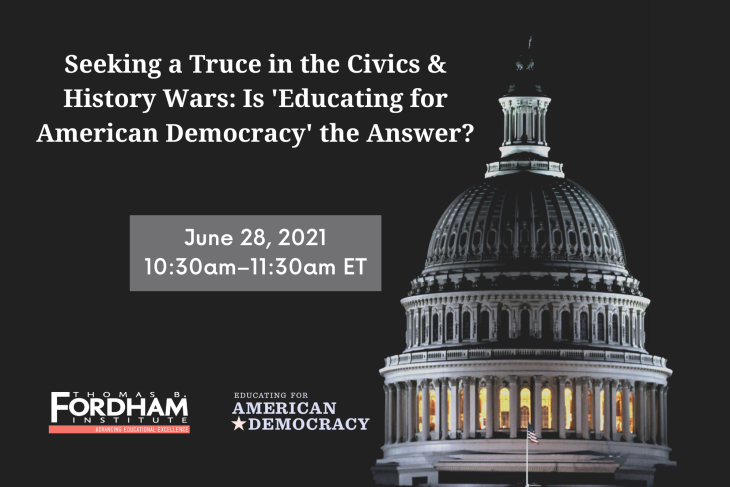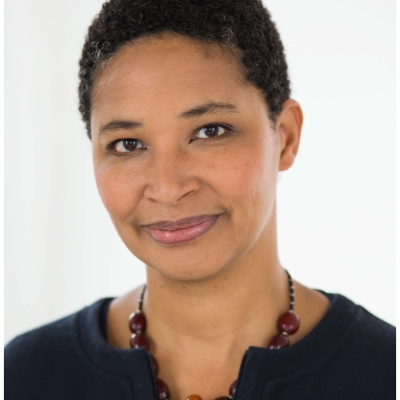Like the cicadas now infesting the mid-Atlantic, debates over how to present American history and civics to our children come around with striking regularity. In the early 1990s, the focus was on proposed national standards for U.S. history, which the Senate eventually condemned with a vote of 99–1. A few years ago, the dust-up was over the Advanced Placement U.S. History course. Today, it’s the backlash to the New York Times’ 1619 project, Donald Trump’s 1776 Commission, and the fight over “woke” history—all while current events (especially the January 6th insurrection) give many Americans angst about the future of democracy itself.
Stepping into the breach is a project funded by the National Endowment for the Humanities and U.S. Department of Education, seeking to find a path forward: the Roadmap to Educating for American Democracy, released earlier this year with much fanfare. This initiative brought together over 300 academics, historians, educators, and other experts, individuals with very different perspectives and backgrounds, with the goal of issuing guidance for excellence in K–12 U.S. history and civics instruction, and doing so with consensus. It’s been widely praised, but also criticized.
The question is whether the document succeeds at its stated goal. Does it fairly represent a diversity of political points of view, while being intellectually rigorous, content rich and pedagogically workable? Or is bias apparent in the final product?
Join us on Monday, June 28, for a debate over these important questions between Danielle Allen, political theorist at Harvard and one of the authors of the EAD roadmap, and Mark Bauerlein, professor at Emory University and a critic of the EAD, to be moderated by Fordham Institute president Michael J. Petrilli.
Event Details
Schedule
The Roadmap to Educating for American Democracy (10:30am)
Panelist Introductions / Statements (10:35am)
Moderated Debate (10:40am)
Closing remarks (11:25am)
Speakers
- Danielle Allen is James Bryant Conant University Professor at Harvard University. She is a political philosopher and public policy expert, who focuses on democracy innovation, public health and health equity, justice reform, education, and political economy. She also directs the Democratic Knowledge Project, a K–16 civic education provider. Her books include Our Declaration: a reading of the Declaration of Independence in defense of equality, Cuz: an American Tragedy, and Talking to Strangers: anxieties of citizenship since Brown v. Board of Education. She has chaired numerous commission processes and is a lead author on influential policy roadmaps, including Pursuing Excellence on a Foundation of Inclusion; Roadmap to Pandemic Resilience; Pandemic Resilience: Getting It Done; Our Common Purpose: Reinventing American Democracy for the 21st Century; and Educating for American Democracy: Excellence in History and Civics for All Learners K-12. She was for many years a contributing columnist for the Washington Post, and writes for the Atlantic.
- Mark Bauerlein is Emeritus Professor of English at Emory University and an editor at First Things magazine. His books include Literary Criticism: An Autopsy; Negrophobia: A Race Riot in Atlanta, 1906; and The Dumbest Generation: How the Digital Age Stupefies Young Americans and Jeopardizes Our Future; or, Don’t Trust Anyone Under 30. The Dumbest Generation Grows Up: From Stupefied Youths to Dangerous Adults will appear in Winter 2022. Apart from his scholarly work, he publishes in popular periodicals such as The Wall Street Journal, The Weekly Standard, The Washington Post, TLS, and Chronicle of Higher Education. He lives in Alexandria, VA.
Have questions for one or both panelists? Submit your questions at registration and we’ll work them into our discussion.
The webinar recording will be made available online within 24 hours of the event.



